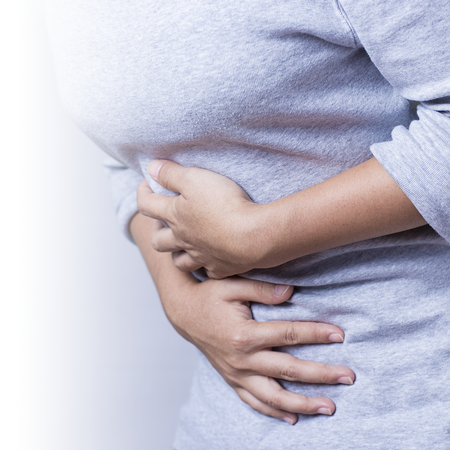The unpleasant effects caused by ulcerative colitis can be diminished by a healthy lifestyle and medical treatments or surgery.
Ulcerative colitis (UC) is a chronic disease characterized by inflammation of the inner wall of the large intestine (colon). In people with the disease, the immune system does not function properly, “attacking” the wall of the intestine, which causes inflammation, lesions, bleeding and diarrhea. Ulcerative colitis can affect women and men of all ages, but it most often occurs in people who are in their twenties and thirties.
What are the signs of UC?
There are different degrees of involvement, which influence the progression of the disease. Some people experience acute episodes followed by long periods of remission, while others have no break in the symptoms. And, while some people are only very mildly affected, others have severe symptoms that could require hospitalization.
The most common symptoms of ulcerative colitis
- chronic diarrhea
- blood or mucus in the stools
- abdominal pain
- loss of appetite and weight loss
- fatigue and weakness
- fever
- nutritional deficiencies
Note that the disease can also attack sites outside the digestive system, such as the joints, eyes and skin.
What are the risks associated with ulcerative colitis?
When they are severe, symptoms of UC can cause complications such as nutritional deficiencies, heavy bleeding leading to anemia or bowel obstruction. Additionally, some people with the disease have a higher risk of developing colon cancer, depending on the duration and intensity of their disease), which is why it is recommended that they be closely monitored by a doctor.
How is ulcerative colitis treated?
There are three main treatment methods: non-pharmacological measures, drug treatments and surgery.
How is ulcerative colitis treated?
- Get enough rest and sleep.
- Keep stress to a minimum.
- Choose a healthy and balanced diet by following the advice of a nutritionist.
- Stay physically active.
Ask your pharmacist for advice before taking over-the-counter or prescription medications, as some of them may have to be avoided.
Drug treatments
Certain treatments are intended to quickly reduce symptoms of the disease during a flare-up, promoting remission. Others help to prolong the period of remission. Therefore, it is sometimes necessary to combine more than one treatment. Treatment administration varies from one medication to another: ingestion by mouth, enema or rectal suppository, intravenous injection.
- Anti-inflammatory drugs that act on the intestine (5-ASA)
These help to reduce the inflammation of the digestive tract. They promote disease management and help to prevent recurrences. - Corticosteroids (cortisone)
These are often used during a flare-up to promote remission. Certain people will have to take them for a longer period than others. - Antibiotics
These are used to treat complications and infection. - Immunosuppressants
These are used to prevent the immune system from attacking the digestive tract. They can be combined with other treatments. - Biological response modifiers (BRM)
They act in a very targeted way on certain components of the immune system. They are often used in moderate-to-severe cases of the disease, when it is resistant to other treatments or to help reduce the dosage of other drugs.
There are other treatments available against UC that are not described here. Don’t hesitate to discuss them with your pharmacist to learn more about them.
Surgery
Surgery is considered when all other treatments have failed or when there are complications. It consists of removing the diseased sections of the intestine. Roughly 30% of patients with ulcerative colitis will undergo surgery. For many of them, surgery will cure the disease. If you are hesitant or have questions about the surgical procedure for ulcerative colitis, your doctor can help you to make a choice and weigh the advantages and inconveniences for this option.
Don’t hesitate to speak to your doctor or pharmacist if you have any questions about ulcerative colitis, and for advice about treatments and their side effects.

